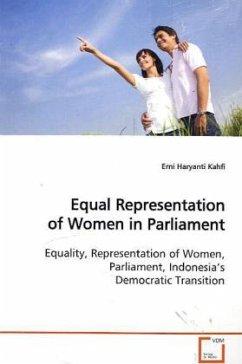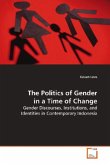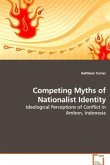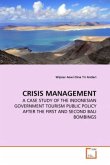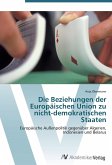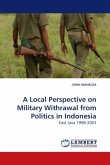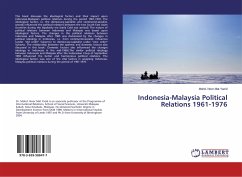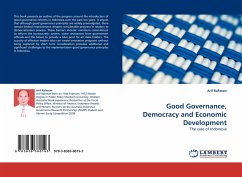Over the last two decades international development
agencies have promoted worldwide women's quota as an
affirmative action to improve women's abysmally low
representation in politics. Indonesia has often been
receptive to international policy efforts and the
pursuit of women's equal political representation
gained momentum after the downfall of Suharto's
authoritarian government in the 1998. This work
discusses the myriad of pathways to increasing women
representation learned from women that had been
elected to the National Parliament in Indonesia in
the 1999 free democratic election. By exploring
mainstream and feminist discourse on democracy,
representation and women's empowerment within the
context of new Indonesia's democratic atmosphere and
paternalistic political culture significant findings
emerge about women's association with certain social
economical political circles; women s ability to
challenge the dominant gender ideology of 'ibuism';
resistance to women's quota; and concern about on
women's and/or children's issues. This work will be
useful to women activists, politicians and policy
makers, international development institutions and
scholars of South East Asia.
agencies have promoted worldwide women's quota as an
affirmative action to improve women's abysmally low
representation in politics. Indonesia has often been
receptive to international policy efforts and the
pursuit of women's equal political representation
gained momentum after the downfall of Suharto's
authoritarian government in the 1998. This work
discusses the myriad of pathways to increasing women
representation learned from women that had been
elected to the National Parliament in Indonesia in
the 1999 free democratic election. By exploring
mainstream and feminist discourse on democracy,
representation and women's empowerment within the
context of new Indonesia's democratic atmosphere and
paternalistic political culture significant findings
emerge about women's association with certain social
economical political circles; women s ability to
challenge the dominant gender ideology of 'ibuism';
resistance to women's quota; and concern about on
women's and/or children's issues. This work will be
useful to women activists, politicians and policy
makers, international development institutions and
scholars of South East Asia.

